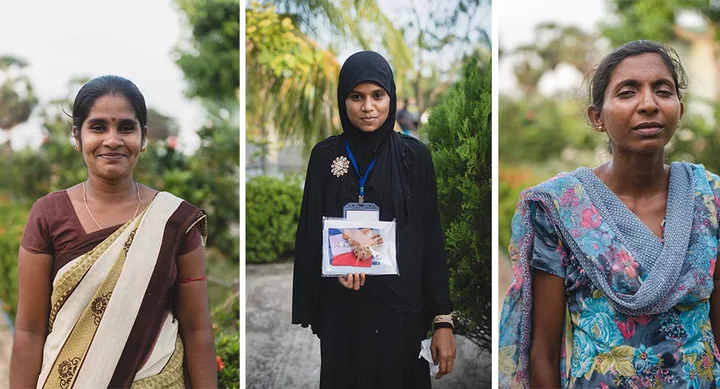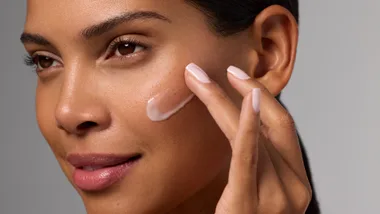“Everybody knows that my husband is in the jail and they know that I am the very poorest family girl,” 33-year- old Srathran Pardathy, from Eastern Sri Lanka, tells marie claire, her eyes wet with tears.
“Normally this work is a woman’s undoing. But they are not thinking and seeing me like that.”
Srathran’s husband was jailed for bigamy, leaving her to raise their four-year- old daughter alone.
Today, with a small grant and training from Plan International Australia, she’s selling palm leaf products near her village, and even as far away as the capital, Colombo. Yes, she says, she faced some backlash from her friends and neighbours. In Sri Lanka, a woman working outside the home is, as Srathran says, her “undoing” – at least in the eyes of many of her peers. Despite decades of civil war, the devastating 2004 Boxing Day tsunami that killed over 30,000 people leaving thousands of families impoverished, and rising inflation, women are still expected to home-make while their husbands make money.
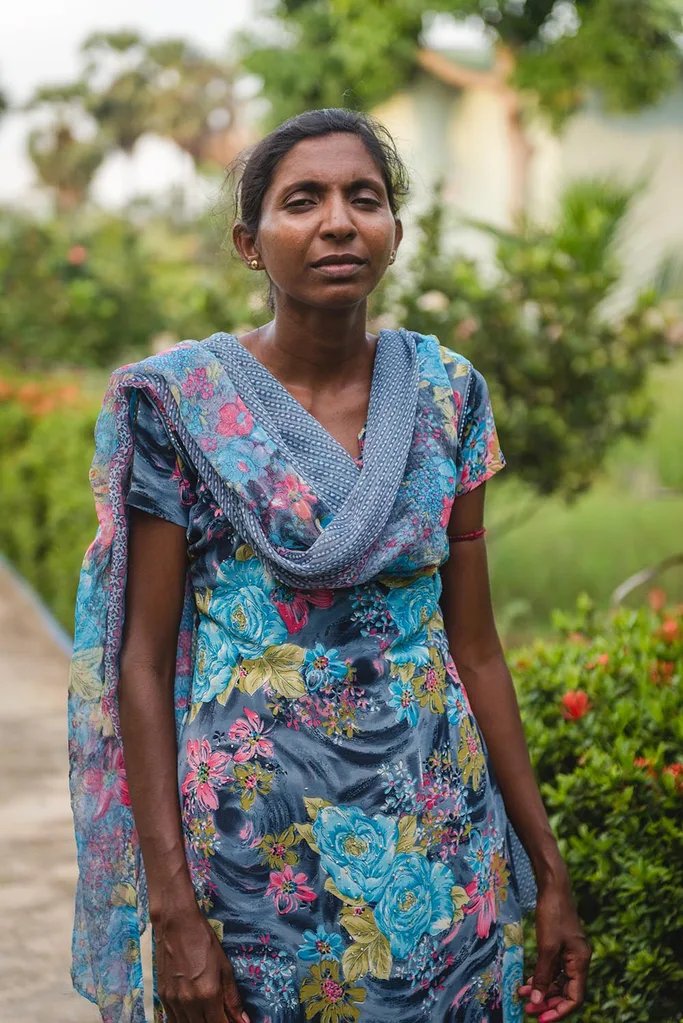
But as Srathran’s income grew, so did her bravery and confidence. “I didn’t study but my child needs to be studying,” she explains, adding that the money she makes allows her daughter to attend preschool, and hopefully continue with her education into her teens. She wants, she says, an “educated child, not like me. That is my aim.”
Aid organisation Plan International is helping women like Srathran not only acquire the practical skills and business knowledge to generate their own incomes, but also combat the patriarchal stereotypes that marginalise them. Plan’s Youth Economic Leadership project aims to increase the standard of living of young people in Sri Lanka by giving them access to skills that will help the, get them employment in areas of demand. It targets youth aged 15-25, as well as women and men of marginalised families, like Srathran’s.
Since its beginning in 2013, hundreds of young people have had their lives changed through the power of employment. “We also work on the parents,” says Upali Wijentunge, National Advisor – Household Economic Security for Plan Sri Lanka. “They think that if they let their daughters go outside the home something bad will happen to them. We work to help change their ideas.”
Global handmade and vintage market place Etsy is also pitching in. Each year in Australia, the site launches its Make For Good program, where Etsy makers are encouraged to donate a portion of their revenue to Plan – in 2016, they amassed a stunning $40,000.
In March this year two of its star sellers, Kiralee Robinson (Kiralee and Co) and Cat Badcock (Cat Rabbit Plush) journeyed to Sri Lanka to exchange their hand making skills with local women who have benefitted from the Plan project.
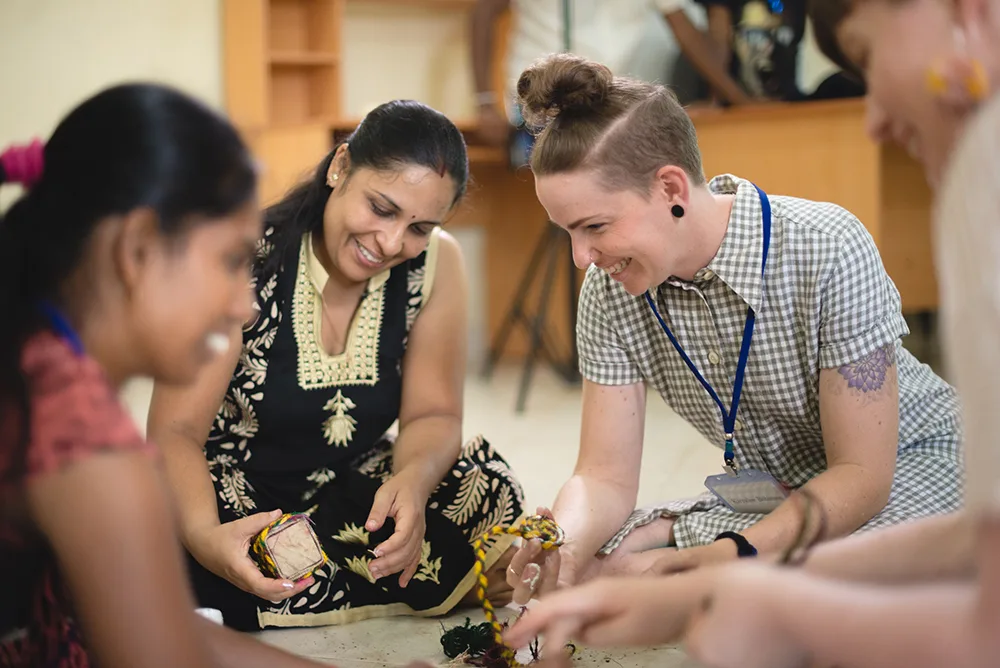
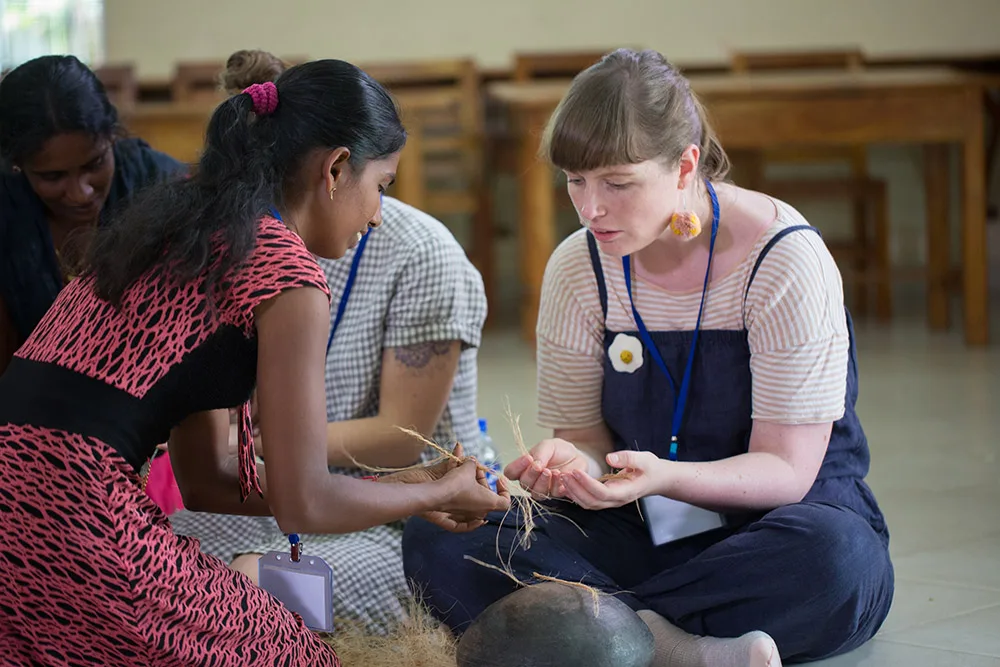
Both the Australian women and their Sri Lankan counterparts began the day exchanging not so much skills as nervous smiles – wondering how on earth they’d be able to teach each other anything when saddled with the barriers of language and culture. But within a short time, both groups realised they each spoke fluent ‘craft’ – and were soon instructing each other wordlessly on how to create plush toys, woven bracelets and strong fibres from coconut husks – laughing as each woman struggled at first to understand the other’s skills, then surprising themselves as it all came together.
“They’re artisans just like us. It felt like we were hanging out with our sisters in another country,” explained Kiralee, from Ipswich in Queensland. “They were so funny. They were just beautiful.”
Support Plan’s work, including women’s economic empowerment programs around the world:
· Become a regular supporter of change for women and girls
· Make a one-off donation
· Make a donation to Plan’s girls appeal to educate girls
The new Make For Good collection will be available on Etsy at etsy.me/makeforgood from September 2017.
